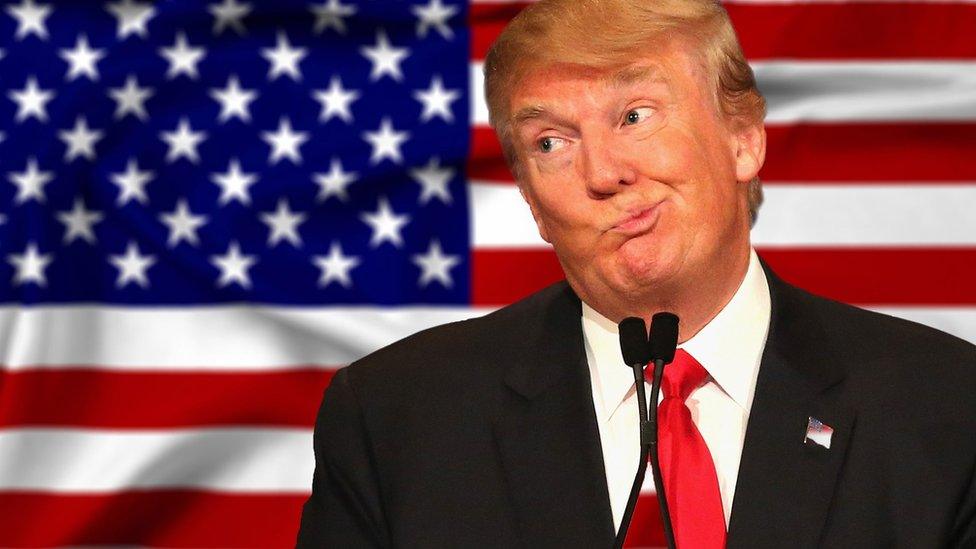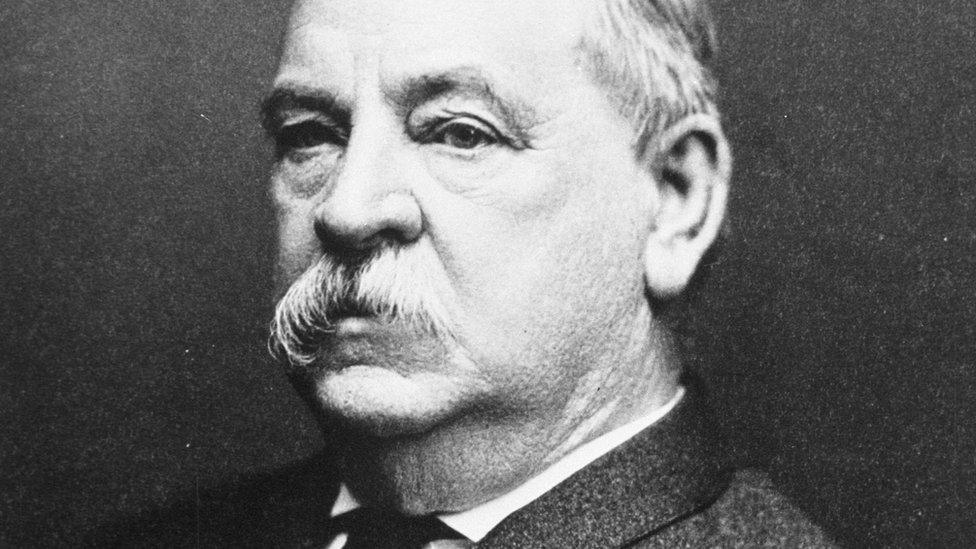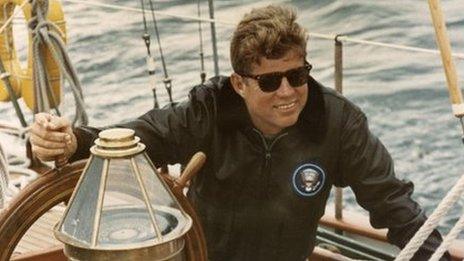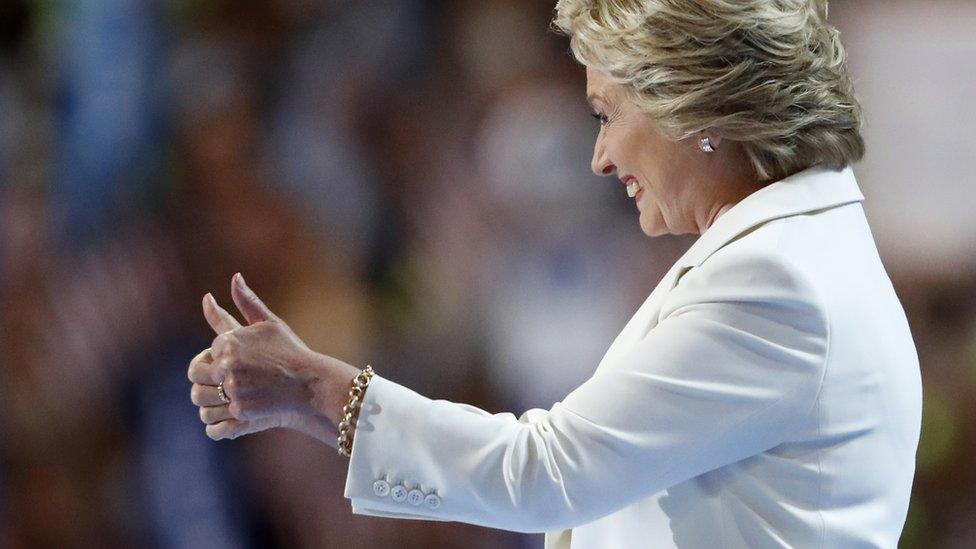Ail to the chief: A history of US presidential bad health
- Published
Footage captured Hillary Clinton stumbling after leaving a 9/11 ceremony
Video footage of Hillary Clinton stumbling as she made an early departure from Sunday's 9/11 memorial ceremony, and the subsequent revelation that she had been diagnosed two days earlier with pneumonia, have fuelled calls for the presidential candidates to publish their full medical records.
At 68 and 70 respectively, Democrat Mrs Clinton and her Republican rival Donald Trump are among the oldest candidates in history. Mr Trump would be the oldest president ever elected, Mrs Clinton the second.
But how does the level of personal health scrutiny seen in this campaign compare with that of candidates and presidents past?
'The healthiest individual ever'
Mrs Clinton last year published a two-page letter, external from her personal doctor, Lisa Bardack, in which Dr Bardack gave a relatively detailed description of Mrs Clinton's medical history, including hypothyroidism, a fainting episode in which she suffered a concussion, and several blood clots. The note revealed that Mrs Clinton takes an anti-coagulant as a precaution and has a healthy diet. But the candidate has so far declined to release her full health records.
Mr Trump has published only a much briefer note, external - some four paragraphs - in which his doctor, Harold N Bornstein, declared that the candidate's health was "astonishingly excellent" and would make him "the healthiest individual ever elected to the presidency". Short on detail, the note did reveal Mr Trump's blood pressure and said he had lost 15 pounds. Mr Trump has admitted consuming a large amount of fast food in his diet.

Donald Trump's doctor declared his health to be "astonishingly excellent"
In 2008, Democratic candidate Barack Obama released a 276-word note from his doctor giving him a clean bill of health. But Senator Obama was a lean 47 year old who exercised regularly. His doctor released the results of various tests and declared him to be a fit and healthy middle-aged man.
By contrast, his opponent was a 71 year old with a history of skin cancer and war injuries. John McCain made more than 1,000 pages of his medical records available to reporters - for a few hours and under strict conditions - during both his 2008 and 2000 bids to be president.
But this is a fairly recent fad. Most presidents and candidates have kept their medical history private, leaving the American public unaware of some serious health problems suffered by their commander in chief.
A boat trip and a secret surgery
In 1893, President Grover Cleveland discovered a lump in his mouth that turned out to be oral cancer. Worried the news would send the country into a panic, he snuck a surgeon and medical team on to a friend's yacht and set sail for four days under the guise of a pleasure trip.

Crucially, Grover Cleveland's surgeon managed to preserve his famous moustache
The surgeon removed the tumour, along with five of the president's teeth and much of his jawbone, replacing the latter with a prosthetic. Crucially, he got the tumour out through the mouth, preserving Cleveland's famous moustache. The surgery stayed more or less secret until after the president's death.
Woodrow Wilson suffered several strokes in the years before he was elected, but never disclosed the information to the public. A subsequent stroke while he was in office, in 1919, was also kept quiet under the guise of a brief illness. His wife, Edith Wilson, partly took charge. "I don't know what you men make such a fuss about," she later said. "I had no trouble running the country when Woody was ill."

John F Kennedy was viewed as a young and vital president
Perhaps the biggest deception came when Franklin D Roosevelt stood for a fourth term in 1944. Roosevelt was a wheelchair user and the public knew he suffered from polio. What they didn't know was that he had also been diagnosed with congestive heart failure, hypertension, acute bronchitis and pulmonary disease. Roosevelt's doctor issued a note saying he was in remarkably good health but he died a few months into his fourth term.
John F Kennedy made good use of his image as a young and vital man and in 1961 he became the youngest ever elected president, at just 43. But films of JFK playing football at Martha's Vineyard disguised a number of health problems including severe, chronic back pain and Addison's disease, a life-threatening problem with the adrenal glands that required daily steroids.
- Published19 August 2016
